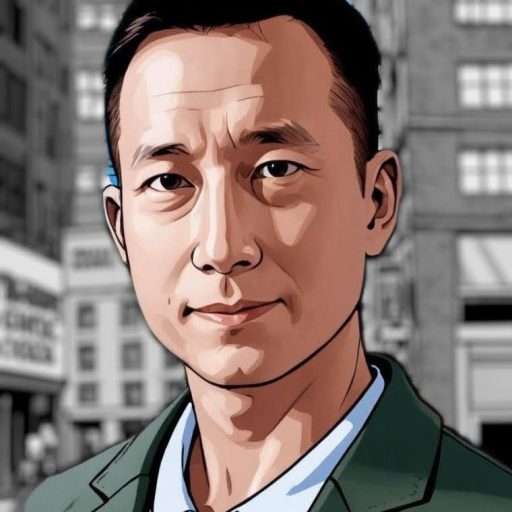I saw a post online by an executive, advising career upstarts NOT to only apply for jobs that they qualify for fully. I concur. I am adding a couple more tips for young graduates, upstarts, and even middle-level executives hunting for jobs in this crisis.
It was December 1984. If you have read the ominous revelations of George Orwell’s 1984, you would greet 1984 with the same fear, as 1984 was the midst of one of the worst recessions in the world. I served in the army, and with poor junior college results, could not land a place in the local universities. I applied for some foreign technical institutes (German and French), but did not qualify either. My only option then, was to quickly find a job, earn some money, and apply for night school.
It was the age where media was still predominantly print, and Internet did not exist. The vehicle for me to apply for jobs, as with anyone else, was the classifieds in the newspapers. I scoured every page of the classifieds, line by line, and called up each of those job advertisements that had a phone number, and wrote in to the rest that advertised with mail boxes and addresses. Yet others, I took a bus and landed at the reception of those businesses for walk-in interviews. I applied for hundreds of jobs, from clerks, messengers, trainee teppanyaki cooks, sales, you name it. I was not choosy, as long as I could get a job. I had a basic Finished Artist certificate and a Fine Arts diploma, but when I applied for basement-level artist jobs at advertising agencies and publishers, doors slammed in my face, with the frequent comment from snotty creative directors and publishers that I lacked a portfolio. Duh! I was an upstart!
Finally, I landed a job as a laboratory assistant in a government testing lab, and worked for a chemist in the materials lab. My pay? A “glorious” S$525 (roughly US$300) A MOHTH (yes, you read that right). I could hardly afford lunch, but I was happy I finally landed a job after months and hundreds of applications. My next job paid slightly better, at S$600 a month, as an editor for a children’s educational book publisher. My lucky break came when I found a job at the then exclusive distributor for Apple, as its resident Desktop Publishing (DTP) Specialist, or in modern terms, an Apple product evangelist. I was the pioneer DTP expert in Singapore, having been the first to use the likes of Illustrator 1.0 and used it with a mouse (no trackpads then) to draw vector portraits, vehicles, landscapes, etc, much to the amazement of trade audiences and business executives I visited. That would be the career turning point for me, when my creative talents were discovered, and I started to be headhunted again and again.
There were many mentors along my career journey, and I took many quantum leaps of faith forward. Nothing in life that commands success can be spoon-fed. What then, are some tips I can give to folks who are thinking of applying for jobs?
1. Be “thick-skinned”
Life is one BIG sales pitch. Everyone of us is a salesperson. When we go for an interview, that is a sales pitch. When we make a presentation to investors, that is a sales pitch. When we defend our dissertation before a doctoral panel, that is a sales pitch. When we run for political office, that is a sales pitch. So, let me say once and for all, we need to accept that we are all salespeople.
The first skill a salesperson needs to have is the ability to take rejections and objections well. The Chinese has a saying, “人不要臉,天下無敵”, which is loosely translated to mean someone who can cast pride aside is invincible. There will be many job applications, and most will end in failure. Success is often just after one more failure ahead. So, be thick-skinned and face rejections valiantly, and keep going. If you don’t push hard forward, you wouldn’t know if you would succeed or not.
2. Try many
Yes, everyone desires a good paying job that offers growth and promotions, as well as bonuses and other perks. Some may want more, including a nice office, staff, overseas postings, etc. However, in a crisis like now, any job that pays is a good job. There are many real talents out there with good credentials and experience, who may be contending for the same jobs as well.
With the “work from home (WFH)” paradigm permeating across the world, your competitors may not even be local, but international. So, don’t be too picky, as long as you can land a job, and pays the bills. It is a numbers game. The more you apply, the better the odds.
3. Ask not
The first thing many young upstarts (and older candidates) do that would immediately turn off some employers is asking about remuneration and benefits before they are even shortlisted. Remember, at a job interview, the encounter between you and the potential employer is like an audition. You have NOT proven your worth to the company yet, and so at that point in time, your worth to the company is ZERO.
I have had success with companies that I applied to (not those I was headhunted), where I lay down what I am capable of, what I can bring to the table, what I can contribute immediately. I also confidently mention that the employer can put me to the test for 3 months. If I prove myself, I expect to be fairly compensated after such a probation. Typically, if an employer is sold on what I am able to do immediately and what plans I have to help the company grow, my chance in landing the job is high. Thereafter, it is far easier to negotiate a decent remuneration package. Don’t count your chickens before they hatch, as the saying goes. Get BOTH your feet in the door and firmly planted in the company first – that is paramount.
4. Venture different
If you are a banker, don’t be stuck in your mind that you will only apply for jobs that you feel you are qualified for and you feel comfortable in. Nothing ventured, nothing gained. Take risks. If you studied computing, try a totally analog and adventurous job like online fitness instructor. My brother’s college mate, quit being a medical doctor, and went on overseas to become a bus driver. In his words, being a bus driver commands about the same pay as a doctor, minus the potential legal liabilities.
I have learned much of what I know on the job(s), rather than expecting someone to “teach” or “train” me. If you are young(er), this is the best time to try a something different. You never know if you can make it big. Venture overseas and land a gig or a job, and immerse in that culture. Learn a new working language, new technical skills, new ways or planning and managing, new people dynamics, new ways of solving problems, new collaboration with new people.
5. Learn ferociously
Yes, go join a graduate program in computing or psychology. But more importantly, learn because you desire to, not because you are after a certificate to frame on the wall. At the end, employers look for field experience and skills, not a piece of paper that does not really determine if you are good or not. Unless you want to be an academic, then by all means go for a PhD.
Learning must be continuous, and coupled with putting what you learn into practice and tests. Learning Python is pointless unless you apply your Python skills in developing robotics code or AI applications. You will need decades of being a “padawan” before you become a worthy “jedi” in any field, so never stop learning or applying your skills. It is not a finite destination, but a journey.
6. Go overseas
You only live once (YOLO), and this great motto is not just applicable to Gen Z, Millennials (Gen Y), but any generation really. If you don’t live in the present and bravely embrace whatever that comes, you owe it to yourself if you ever regret thereafter when you see comrades and peers chase after their dreams and LIVE THEM. So, if where you are now makes you feel oppressed, suffocated, lacking opportunities you desire, or even learning programs you want to attempt, go overseas.
It is entirely different being a 2-days or 2-weeks traveler to a country, compared to actually living and working in it. You will accelerate your language skills, find ways to immerse (and you MUST) in the culture and subculture of the land, socialize with people, and of course, work in a local concern. There are many countries where opportunities abound, and we are not talking about mere money, but the opportunities to learn and acquire expertise. There is nothing like, for example, being an apprentice to a Michelin chief in a restaurant in Kyoto, or working in a fast-paced robotics concern in Denmark, or getting grilled by the top brains of cybersecurity in Tel Aviv. You will smile. You will sweat. You will cry. But the field experience of “been here, done that”, will be priceless, and valued by future employers.
So, even in a crisis, you can build yourself up to be more ready than competing candidates, if you are able to see yourself lightly, be able to push hard in all frontiers and seek out opportunities anywhere, and present value to potential employers. By the laws of natural selection – the fittest survive.

